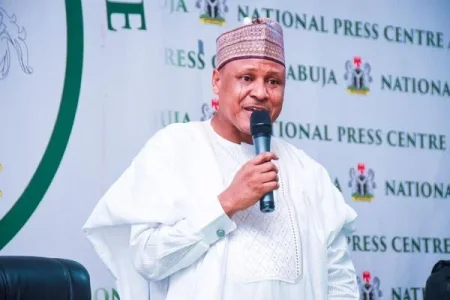
The Nigerian government claims President Bola Tinubu’s economic policies are yielding results, with food and fuel prices reportedly dropping. Minister of Information, Mohammed Idris, urged patience, citing economic reforms as necessary for stability. However, skepticism remains as citizens question whether these improvements are genuinely impacting everyday life.
The Nigerian government has asserted that President Bola Tinubu’s economic reforms are beginning to show positive results, with food and fuel prices reportedly declining. Minister of Information and National Orientation, Mohammed Idris, made this claim during the 4th edition of the 2025 Ministerial Briefing in Abuja, where he addressed key economic issues.
Idris acknowledged the hardships Nigerians have faced due to the administration’s policies but insisted that the difficult period is easing. He emphasized that reforms aimed at stabilizing the economy require sacrifices and resilience, assuring that the country is gradually witnessing the benefits.
According to the minister, indicators such as a more stable exchange rate, lower petroleum product costs, and a reduction in food prices suggest that the government’s economic strategies are taking effect. However, many Nigerians remain skeptical, questioning whether these improvements are genuinely translating into relief for households struggling with high living costs.
Idris also called on religious leaders to pray for national unity and prosperity, especially during the sacred periods of Ramadan and Lent. He urged citizens to remain patient, emphasizing that Tinubu’s policies are designed to create long-term economic stability and growth.
Despite the government’s optimism, concerns persist about whether these changes are substantial enough to impact everyday Nigerians, as many continue to struggle with inflation and economic challenges.




